
The wait for justice is turning out to be a long and frustrating one for survivors of the 7/11 serial train blasts, finds Toral Varia on the fifth anniversary of the blasts
July 11, 2006, or 7/11 as we call it today, was a terrible Tuesday. Five years have elapsed since then, but it seems that the victims of 7/11 serial train bombings will have to wait for a few more months before the long drawn legal process comes to an end, bringing closure to the family members of the 187 people killed and 800 injured in the ghastly bombings.
Now compare that with the 26/11 terror attacks trial. Within 17 months of the terror strike, a speedy trial had taken place and prime accused Ajmal Kasab had been pronounced guilty.
For victims of 7/11 blasts who have been trying to rebuild their lives from scratch, patience is wearing off fast. Most of them feel that it's about time the state government commits the case to a fast track court.
...
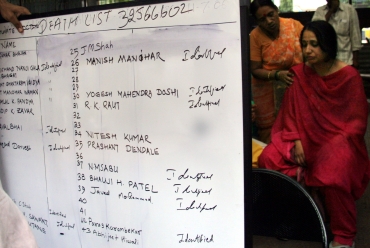
Mahendra Pitale, an artist and a designer by profession, lost his left hand below the elbow in the blast that ripped off a train compartment at Mumbai's Jogeshwari station. Pitale had to have his hand amputated and cannot carve sculptures anymore.
"26/11 happened much after the 7/11 blasts, so ideally the 7/11 case verdict should have been pronounced first. But because the victims of 26/11 were foreigners and upper class people, the government was very proactive. In the 7/11 bomb blasts, most of the victims like us belonged to the middle class, so the government seems to be in no hurry. We feel neglected. If the 26/11 case can be tried in a fast track court, this case too should be tried in a fast track court," says Mahendra Pitale.
"I used to carve with both my hands earlier. But now I cannot use both my hands. I can't carve anymore. So I have started working on Computer Aided Design," he laments.
...

Though Pitale was promised a government job in the wake of the accident, no offer letter has come his way even after five years.
"Firstly, the job that was offered to me was that of a class four employee and not in sync with my qualification. When I went to enquire, the government officer said that I will earn much less than what I am making currently. But I still want to see what exactly is the offer by the government, but the letter hasn't yet come," adds Pitale.
Jayprakash Balkrishna Gurav, another victim, has lost all faith in the government.
"The government forgets quickly. First it was 7/11, then Kasab, then the Adarsh scam and now, some other scam will take its place. I have lost all hope now. Nothing can be done about it. Earlier they used to talk so much about Kasab, now even he has been forgotten," says Gurav.
...
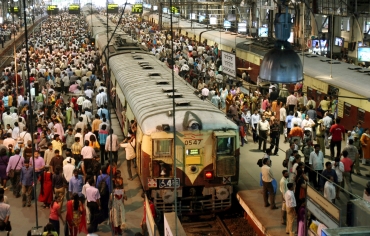
A flower vendor by profession, Gurav's life changed completely after the serial blasts.
"Earlier I was able to work up to 100 per cent of my ability. Now I can barely manage even 50 percent of that. Back then I had two jobs, I had my own floral business," says Gurav.
He now takes each day as it comes. Like Pitale, Gurav also feels that the government hasn't been fair to them.
"They have spent so much on the Kasab trial. Why can't they spend half of it on the 7/11 trial," he asks.
"In the list of most wanted accused that was handed over to Pakistan, the government had included the names of all the terrorists who are wanted in the 26/11 case. There are 13 wanted accused in this 7/11 case; why hasn't the government listed their names? At this rate, the judgment will be pronounced only by 2021," says Bharatiya Janata Party leader Kirit Somiaya, who has been crusading for the 7/11 victims in their fight for justice and compensation.
...
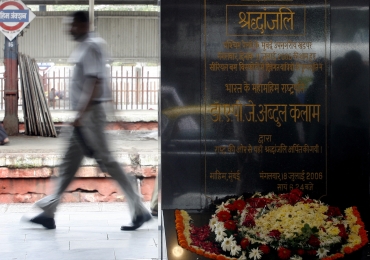
Meanwhile, the trial which initially faced a delay has finally picked up speed.
Advocate Raja Thackarey, who has been appointed as a special public prosecutor in the case, has been conducting witness examinations on a daily basis and feels that the case is now moving towards its logical end.
So far, the prosecution has examined as many as 111 witnesses and over 15 more witnesses are expected to be examined. Investigators have also submitted over 1,000 documents to be admitted as evidence.
According to the defence lawyers of witnesses that have been examined so far, three crucial witnesses have turned hostile.
...
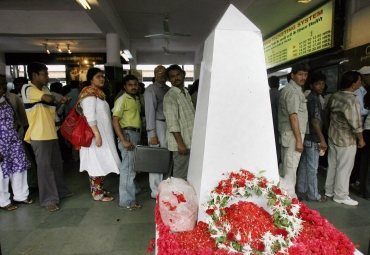
"Especially the witness who was specially called from a neighbouring country has failed to support the prosecution's case," says defence lawyer Avinash Rasal.
Defence lawyers have also questioned the credibility of several witnesses who have given almost identical statements to the court.
"At least two witnesses have a similar story. But both have given the statement with several factual errors, raising doubts about their credibility," noted another lawyer.
Of the three hostile witnesses, one is a cousin of the prime accused Faisal Ataur Rehman Sheikh, who claimed before the court that his statement was recorded under duress.
During his deposition before the special MCOCA court, he had said, "I was kept under confinement for more than 20 days."
...
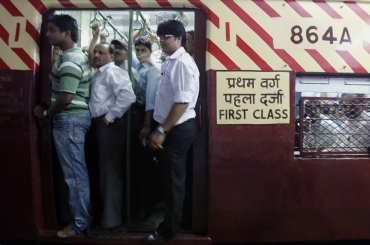
The trial, which was delayed by four years, restarted last year after the Supreme Court rejected a petition filed by Kamal Ansari, one the 13 accused currently under trial for their alleged involvement in the 7/11 case. Ansari had challenged the constitutional validity of a section pertaining to 'insurgency' under the MCOCA.
The Anti Terrorism Squad has filed over a 10,000 page charge-sheet, which included evidence and charges to establish the role of the 13 arrested and 15 absconding accused, before the special MCOCA court in Mumbai.
According to the charge-sheet, the conspiracy to trigger the serial train blasts was hatched in Pakistan and they were the handiwork of Lashkar-e-Tayiba and the Students Islamic Movement of India.
On July 11, 2006, serial blasts were triggered in seven local trains in Mumbai in a span of just 11 minutes.
On July 11, 2011, let's hope that the case doesn't end up being yet another example of 'justice delayed is justice denied'.